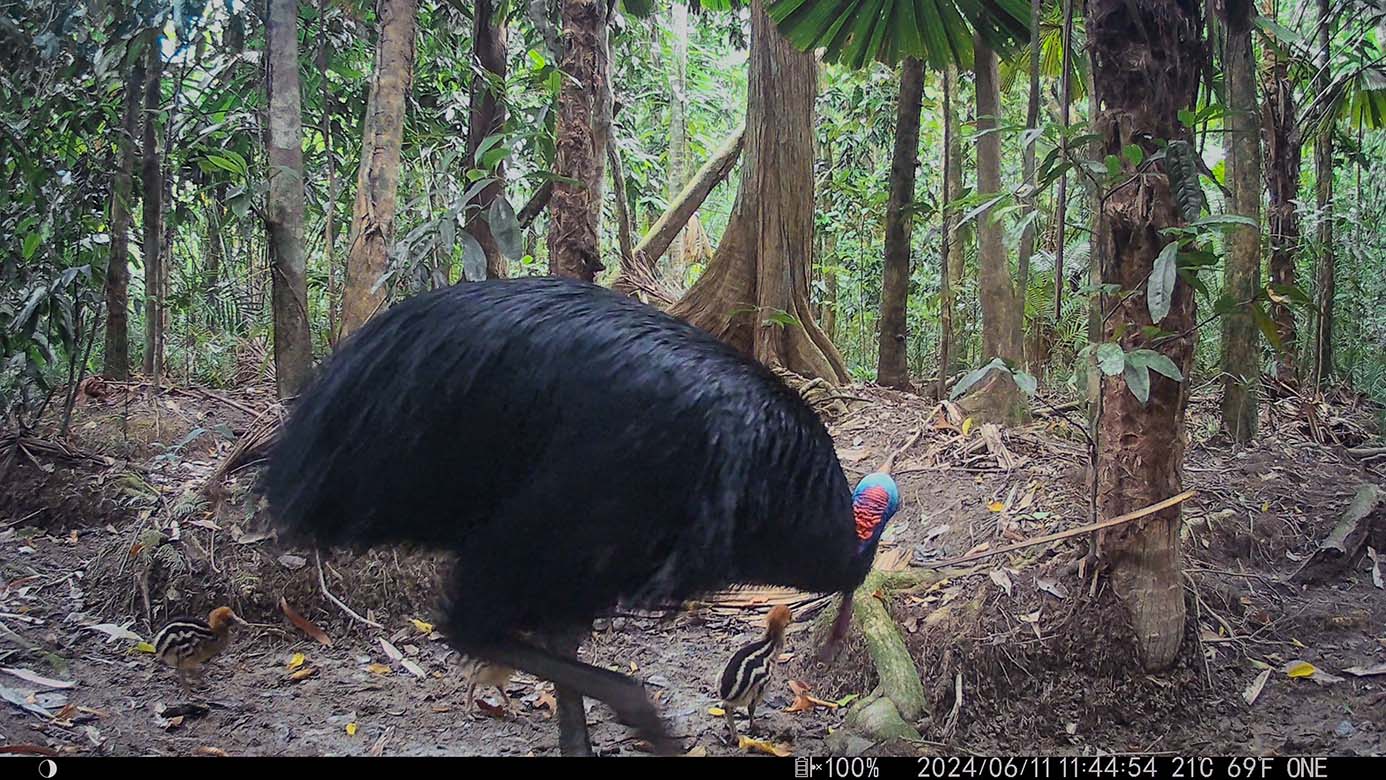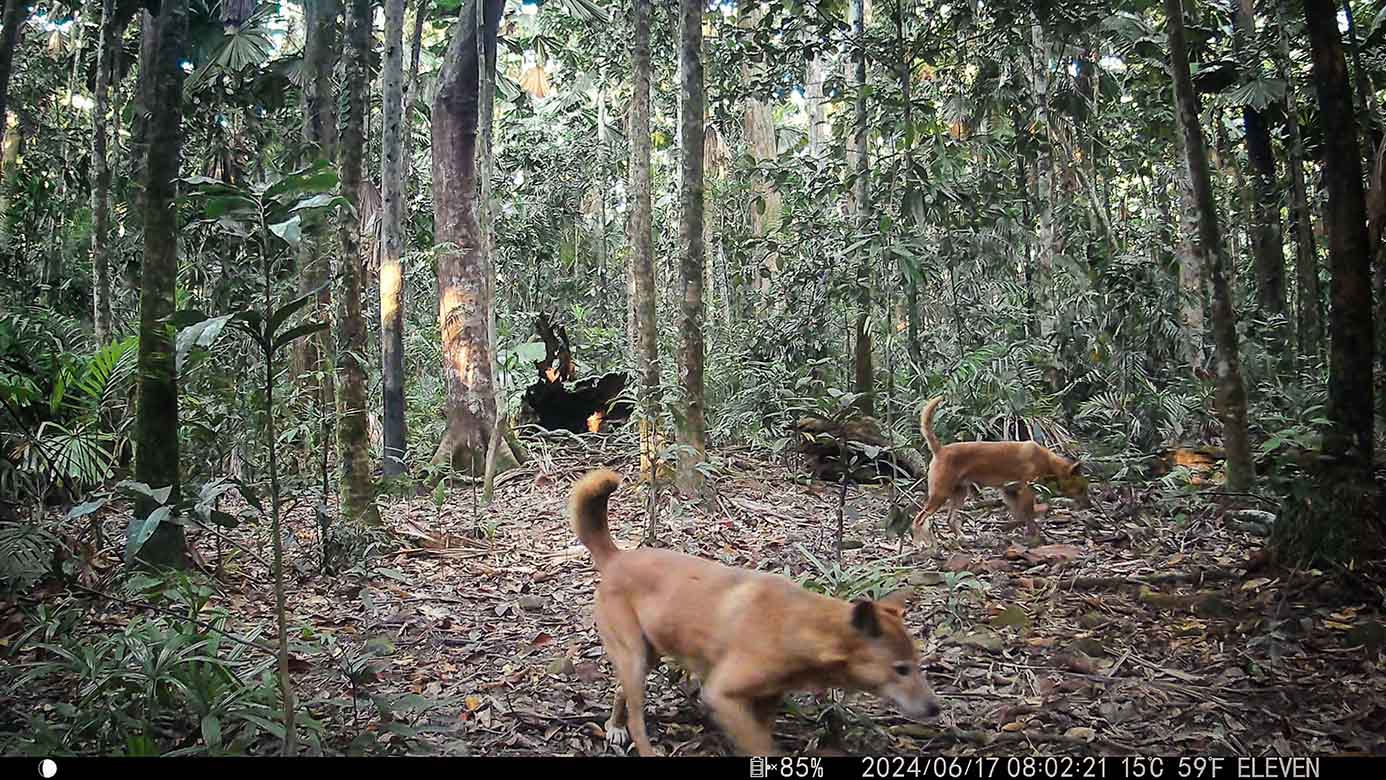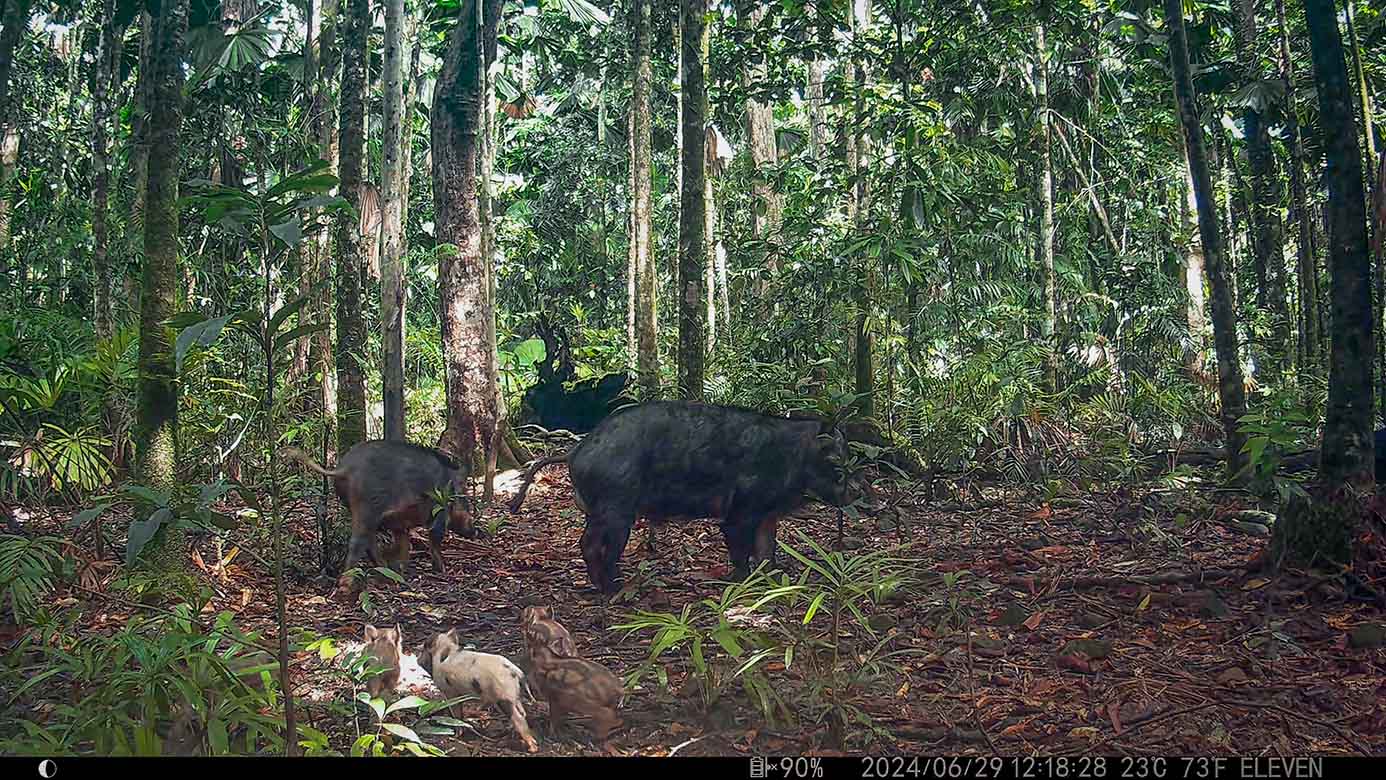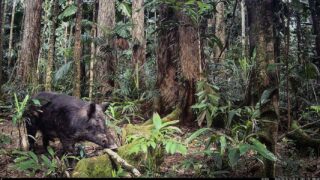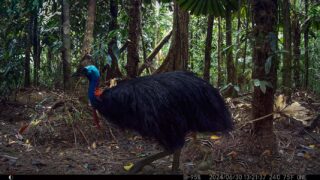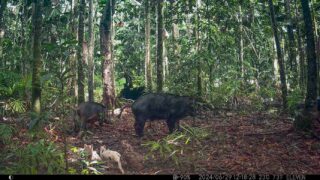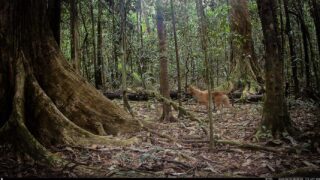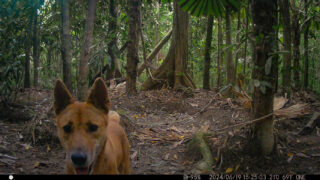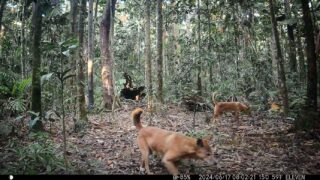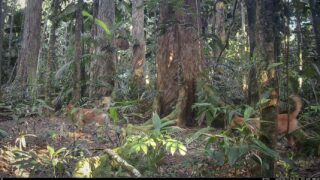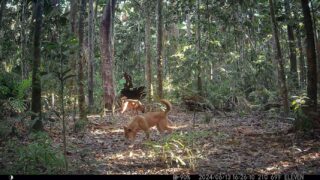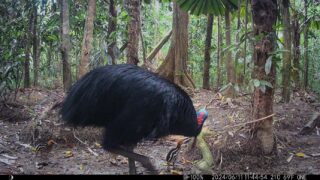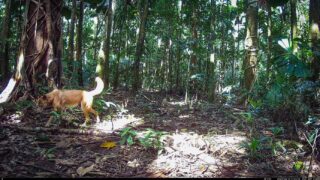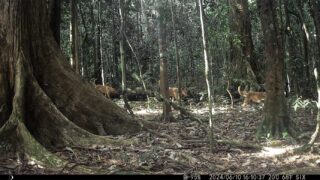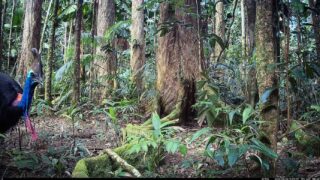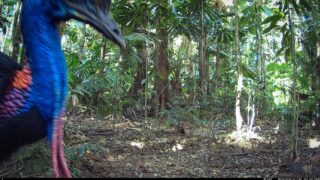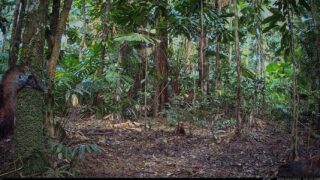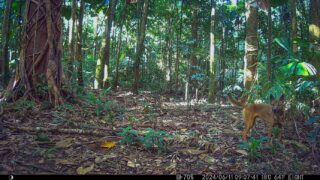Camera Traps – June 2024 accrued 55-cassowary sightings, 45-dingoes and 193-feral pigs. Against the cumulative monthly average, cassowary numbers fell by 47%, whilst dingo-sightings increased by 40% and feral-pig numbers also grew by 24%. Against June 2023, cassowaries were 50% fewer, dingo numbers also fell by 32% whilst feral-pig numbers rose by 11%.
Image highlights from Camera Traps – June 2024
Introducing Crinkle Cut’s newest brood – Aragorn, Legolas & Gimli
Daintree dingoes with pregnant females at front …
Feral-pig fecundity …
Feral-pig management problems …
In February 2020, the Centre for Invasive Species Solutions welcomed the appointment of Dr Heather Channon to the newly created role of national feral pig management coordinator, based at Australian Pork Limited.
On the 6 October 2021, the National Biosecurity Committee endorsed the National Feral Pig Action Plan: 2021 – 2031, with the Vision to:
Actively suppress, or eradicate, Australian feral pig populations to reduce their impacts on environmental, agricultural, cultural and social assets, by guiding and supporting all land managers to deliver effective, coordinated, sustained and humane best practice management of feral pigs.
However, some twenty-years earlier, Predation, habitat degradation, competition and disease transmission by feral pigs was listed as a key threatening process under section 168 of the EPBC Act, and yet, the Threat abatement plan for predation, habitat degradation, competition and disease transmission by feral pigs (Sus scrofa) (2017) affirms:
It is not possible to eradicate feral pigs from Australia with current resources and techniques, and it is unlikely to be possible in the near future, as they are so widely established. As such, the focus of feral pig management must be on abatement of the impacts …
How can the inadvertent provision of sanctuary on Australia’s 10,500 conservation reserves, under the unintended blanket of legislative protection, possibly conform to any semblance of feral-pig ‘threat abatement’?
Daintree Rainforest Foundation Ltd has been registered by the Australian Charities and Not-for-profits Commission and successfully entered onto the Register of Environmental Organisations. Donations made to the Daintree Rainforest Fund support the Daintree Rainforest community custodianship and are eligible for a tax deduction under the Income Tax Assessment Act 1997.

